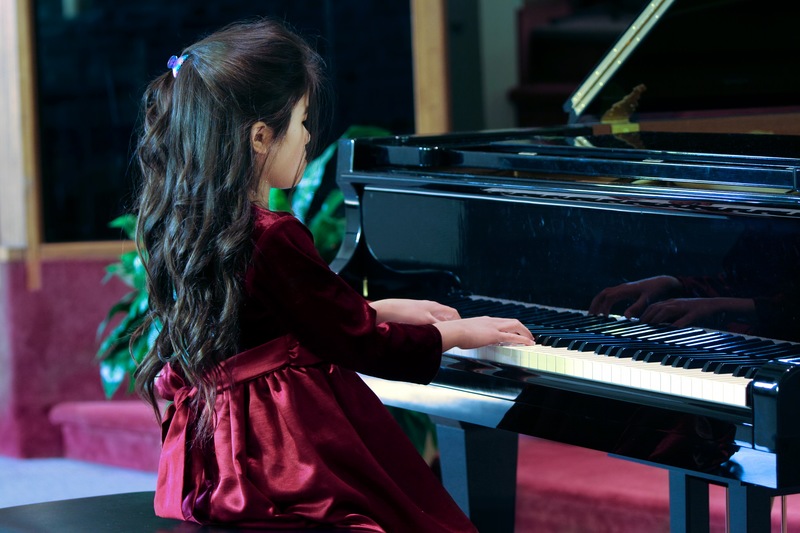April 18, 2023 Mashene Music Group, Las Vegas
Unveiling the Perfect Time to Embark on Piano Lessons: Insights for 2023
If you’re contemplating the idea of learning to play the piano or igniting your child’s musical passion, timing is crucial. Despite various misconceptions about the optimal age to start piano lessons, research suggests that the prime window falls between the ages of 5 and 9.
Diving into the Research on Early Learning and its Impact
Scientific studies have revealed that young children have a remarkable ability to absorb information due to their innate curiosity and creativity. This is why beginning piano lessons between the ages of 5 and 9 is considered optimal. Children in this age bracket tend to have longer attention spans, well-developed motor skills, appropriate hand size, basic counting abilities, and a strong desire to learn. In fact, some prodigies, such as the renowned composer Mozart, may even start as early as age 3.
Age and Ability: A Significant Correlation
While age is not the sole determinant of a child’s ability to learn the piano, it does play a significant role. Playing the piano demands complex multitasking skills, such as coordinating different rhythmic patterns with each hand. Younger children tend to have an advantage as they are less habituated to one hand dominance, allowing them to develop ambidexterity more easily. As children grow older, their potential for ambidextrous development and coordination may decline, making the learning process more challenging.
Is Your Child Too Young?
Introducing your child to the piano at an early age can be beneficial, but it’s important to look out for certain signs to determine if they are truly ready. If your child struggles to differentiate left from right, has difficulty counting, or lacks basic motor skills, they may not be prepared to start playing. Additionally, your child must express genuine interest and willingness to learn. If they are not attentive or enthusiastic about piano lessons, it’s best not to push them prematurely.
Essential Requirements for Piano Learning
If you are considering enrolling your child in piano lessons, several factors should be taken into account, including hand size, basic motor skills, attention span, and ability to follow instructions. Children learn by imitating their instructor’s movements, so finger independence is crucial. Although small hands are not a hindrance to playing the piano, basic motor skills are necessary to commence the learning process.
Whether you’re young or old, it’s never too late or too early to embark on a piano journey. If you are considering piano lessons, it’s important to remember that it requires patience and consistent effort. With the right timing and preparation, you can help your child or yourself discover the joy and beauty of music through the piano.
Importance of Basic Skills for Piano Playing
For your child to excel in piano playing, basic motor skills are crucial. While playing the piano enhances fine motor skills, it’s important for your child to have a basic level of motor skills before starting. If your child tends to bang their fist on the piano, it’s best to wait until they develop better control before introducing piano lessons.
Creating a Strong Piano Playing Foundation
To ensure success in learning the piano, your child should possess certain foundational skills. These include the ability to count to five, distinguish left from right, and follow instructions. Additionally, a desire to learn and an attention span of at least 30 minutes are important indicators of readiness for piano lessons. Reading music is not essential in the beginning, as the focus should be on developing motor skills and other foundational factors.
Readiness Factors for Learning Piano
Before starting piano lessons, it’s important to assess your child’s readiness. They should be able to count to five, know left from right, follow instructions, and have a desire to learn. Additionally, an attention span of at least 30 minutes is necessary for effective learning. Contrary to common misconception, reading music is not a prerequisite for beginners, as it can be learned later. It’s important to focus on developing foundational skills and a genuine interest in piano playing first.
How late is to late?
If your child shows an interest in learning to play the piano, it can be a beneficial and enriching experience for them. Playing the piano has been shown to improve brain development, patience, discipline, confidence, humility, auditory skills, math skills, language skills, and overall academic performance. You can spark your child’s interest in piano by making the lessons playful and fun, using songs they like, and hiring a music teacher if needed.
It is never too late to start learning the piano, whether you are an adult or a child. While it is true that children tend to learn faster when they are younger, learning the piano is a lifelong journey and can be pursued at any age. Even people with physical limitations, such as having only one hand, have mastered the piano. So, if you or your child are interested in learning to play the piano, don’t hesitate to start at any age older than 2. It’s never too late to embark on the journey of learning to play this beautiful instrument.

COMING SOON: 10 Original Track Bundle by MASHENE: Available Royalty Free, FB, IG, Youtube Shorts repurposing for online videos for creatives + Free Forever Subscription to our SyncMusic Substack!
“A Global Network of Original Music, Creative Content, Royalty Free and professional sync licensing providing endless possibilities for your videos, repurposing.”


Leave a Reply
You must be logged in to post a comment.